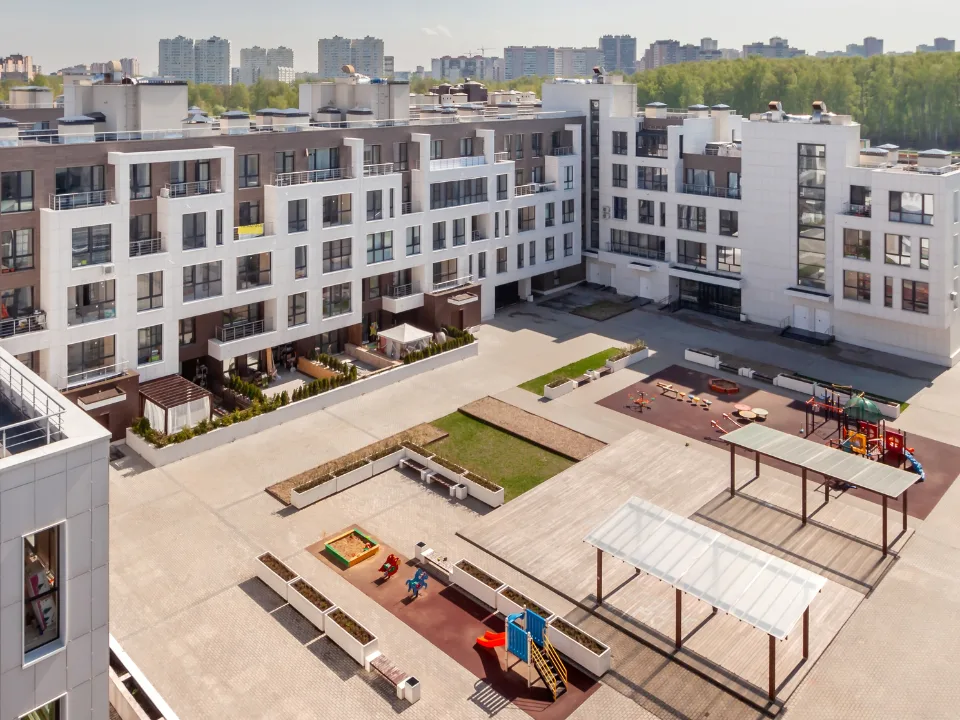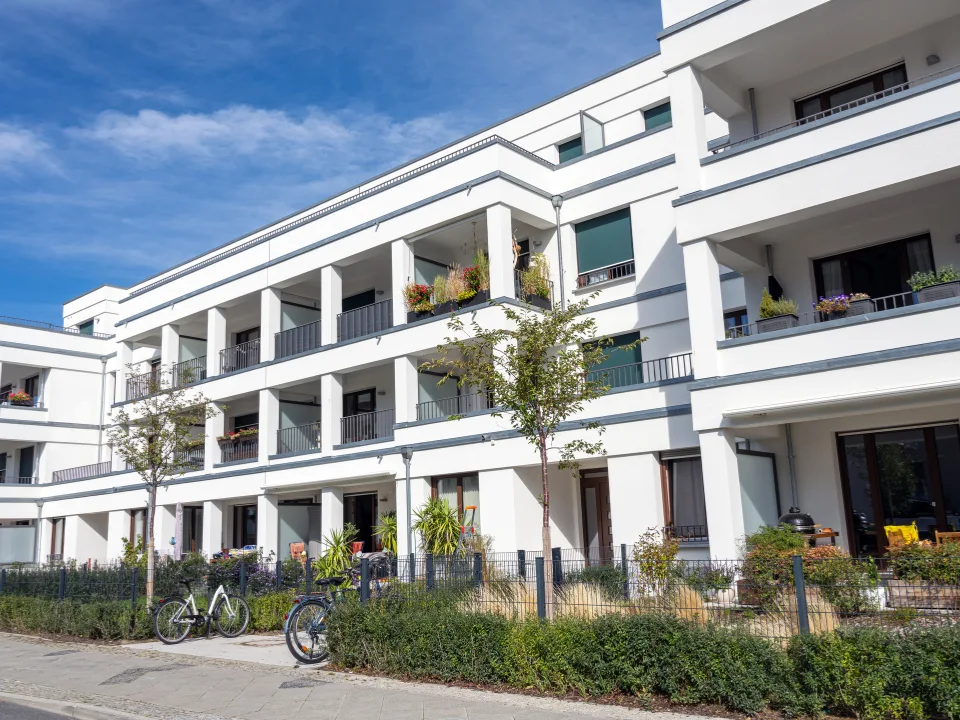LA Apartment Association Challenges Rent Freeze
The Apartment Association of Greater Los Angeles (AAGLA) has sued the city of LA, aiming to terminate the current rent freeze on rent-stabilized units, impacting nearly three-quarters of the city’s apartments.
Together with
Good morning. Q1 2023 saw a spike in delinquency rates for CRE loans held by banks, per a Trepp report. The Apartment Association of Greater Los Angeles (AAGLA) is suing LA over a rent freeze on rent-stabilized units. Meanwhile, multifamily property stakeholders grapple with surging property taxes, which in some areas, exceed inflation rates.
Today’s edition is brought to you by BetterPitch. Focus on your deal, not your deck.
👋 First time reading? Sign up here
CRE LENDING
CRE Bank Loan Performance Slips in Q1, Trepp Analysis Reveals
A new report from Trepp reveals that Q1 of 2023 saw increased delinquency rates in CRE loans held by banks, suggesting escalating distress in all main property types, with the exception of the industrial sector.
Origination volume decline: Origination volume markedly decreased in Q4 2022 and Q1 2023, with commercial mortgage origination dropping to about 40% of the average quarterly volume of 2019. The analysis primarily utilizes Trepp’s T-ALLR data set, encompassing diverse bank balance sheet loan data sourced from various banks, totaling approximately $160 billion.
Delinquency rate increase: Q1 witnessed a significant increase in both short-term and serious CRE mortgage delinquencies, exceeding the uptick seen in Q4 2022. The total delinquency rate rose by 23 basis points, from 0.80% to 1.03%, while the serious delinquency rate similarly increased from 0.55% to 0.78%. The lodging sector, severely impacted by the 2020 Covid pandemic, had the highest delinquency rate, with the retail sector also showing a modest increase since 2020.
➥ THE TAKEAWAY
Zoom out: Despite the resilience shown by sectors like industrial real estate, the broader commercial real estate market is undergoing significant stress. The combined effects of reduced origination volume and elevated delinquency rates, particularly in sectors like lodging and retail, still recovering from the 2020 pandemic, underscore the prevailing uncertainty in the market.
TOGETHER WITH BETTERPITCH
Did you know that having the right pitch can drastically impact your chances of raising funding? But getting it right can be costly and time-consuming…
That’s where BetterPitch comes in.
From acquisitions to dispositions, BetterPitch decks are designed to help you raise money quicker by effectively communicating the key points of your deal without breaking the bank.
Unlike most agencies (who may delegate your work to inexperienced interns & analysts), you’ll work directly with only one dedicated pitch deck designer to craft your presentation from scratch to perfection.
Ready to get started? Book a call today.
PANDEMIC DEBTS
AAGLA Sues LA to Terminate Rent Freeze Affecting Most of City’s Apartments
The Apartment Association of Greater Los Angeles (AAGLA) has sued the city of LA, aiming to terminate the current rent freeze on rent-stabilized units, impacting nearly three-quarters of the city’s apartments.
Winter is coming: The AAGLA is taking legal swings at Los Angeles with the goal of defrosting the rent freeze that holds a firm grip on roughly 650,000 rent-stabilized units. This freeze puts a hard stop on the usual annual rent hikes, which can reach 8% in inflation-rich years. Meanwhile, tenants who enjoyed a rent siesta in the pandemic’s early days are expected to start shelling out their back rent starting from the summer sizzle of August 1st.
The legal tussle: AAGLA argues that the rent freeze, imposed in March 2020, infringes upon the U.S. and California constitutions. In AAGLA’s view, the freeze is a slap in the face of the city’s Rent Stabilization Ordinance, which typically encourages annual increases, and in turn, freezes landlords out of their due process rights.
Consequences for landlords: AAGLA Board President Cheryl Turner says the extended rent freeze has led to financial hardship for many housing providers, with some forced to leave the rental business, liquidate retirement savings to cope with rising costs or face foreclosure proceedings. Daniel Yukelson, President of the Apartment Association, noted that the costs of certain goods and services, including insurance, are escalating faster than the inflation rate.
➥ THE TAKEAWAY
The big picture: AAGLA and LA’s feud spotlights the post-pandemic tightrope walk for landlords and tenants. The court’s verdict could ripple through real estate, tenant rights, and housing policies. It underscores the need for sustainable solutions balancing landlords’ income and affordable housing in a changing economic climate.
🌐 ARROUND THE WEB
📖 Read: Key Biscayne is a gem for opulent oceanfront living in Florida. But for the budget-conscious traveler, there’s a hidden coastal haven in the South, just a 5-hour drive away.
▶️ Watch: In a recent appearance on ‘Closing Bell: Overtime’, Andrew Florance, the CEO of CoStar Group, shed light on the company’s earnings and articulated the impact of commercial REITs on their business activities.
🎧 Listen: After Silicon Valley Bank’s collapse, can regional and community banks in the US compete with too big-to-fail institutions? Scott Hildenbrand, Chief Balance Sheet Strategist at Piper Sandler, weighs in on this episode of Odd Lots.
INFLATION NATION
Here are the Top Hotspots for the Most Significant Tax Hikes in Multifamily

Multifamily property stakeholders are wrestling with escalating property taxes. Some regions are witnessing increases that dwarf inflation rates, as highlighted by a Trepp report.
Financial Pressure: Long-standing concerns in the multifamily sector, such as rising interest rates and refinancing complexities, have been overshadowed by a new problem. Even if inflation eases and the Federal Reserve stops hiking rates, recurrent expenses, including property taxes and insurance premiums, are projected to continue pressuring the Net Operating Income (NOI). These increased costs are of vital importance to lenders who insist on maintaining safe debt service coverage ratios.
Escalating property taxes: The multifamily sector is expressing heightened concerns over the rapid surge in property taxes. Trepp’s report outlines that the areas with the highest property tax hikes between 2021 and 2022 include Richmond, VA; Orlando-Kissimmee-Sanford, FL; Salt Lake City, UT; Virginia Beach-Norfolk-Newport News, VA-NC; and Chicago-Naperville-Elgin, IL-IN-WI.
➥ THE TAKEAWAY
Regional impacts: Various factors, such as population shifts and increased property values, influence tax hikes. For example, Richmond saw a 36% increase in arrivals from Northern Virginia in 2020 and 2021, inflating property values and taxes. Similarly, demand surges, tax increments, and overall growth in commercial real estate values affected cities like Salt Lake City significantly. The swelling property taxes underline the importance of comprehensive regional assessments for stakeholders to mitigate potential financial strains and plan for the future.
✍️ DAILY PICKS
-
Nightingale debacle: CrowdStreet’s CEO, Tore Steen, bows out amidst whispers of millions of dollars evaporating from Nightingale Properties-linked accounts.
-
Troubles across the pond: European commercial real estate takes a 58% hit in Q2 due to rising interest rates, marking the worst since 2010. Office properties suffer a 68% drop.
-
Declines in lending: Newmark Group reports diminished earnings and revenue due to rising interest rates impacting lending and real estate sales. Net income dives 86%.
-
Flight to quality: Empire State Realty Trust’s office lease rate in Manhattan rises to 91.6%, despite the high vacancy rates. The trust signs 25 new office leases.
-
NYC retail assets: Vornado Realty Trust offloads four retail buildings in downtown Manhattan for $124.4M, making a $20M profit.
-
Shvo scores in SoFlo: Michael SHVO, Deutsche Finance America, and German institutional pension funds secure a $190M loan for a major revamp of Raleigh property in Miami Beach.
-
The long game: Extended-stay hotels, offering a cost-effective option to build and run compared to full-service variants, are becoming a magnet for work crews hitting the road.
-
Kick in more cash: Texas-based RPM Living briefly offered a lifeline to Tides Equities and AMC Investments, promising $12M in rescue capital for their joint properties. However, things quickly went south.
-
Deal of the day: The RH Guesthouse in Manhattan, renowned for its secrecy and exclusivity, is up for sale at a price just above $70M.
-
Land package: Seco Ventures purchases over 26 acres in the Panther Island project in Fort Worth, Texas, becoming its largest private sector investor.
-
Fundraising rebounds: Non-traded REIT fundraising rose 39% to $597 million in June from May’s $428M low, driven by REITs exchanging operating partnership units for DST interests.
-
‘Buyer’s Market’: Rising interest rates are transforming the real estate landscape into a paradise for sale-leaseback investors, even as they deploy contrasting strategies to seize emerging opportunities.
-
CosMc’s test: McDonald’s is testing a new brand, CosMc’s, looking to capitalize on customer nostalgia for its vintage mascots while experimenting with smaller-format stores.
-
Cooling market: Houston’s industrial real estate market remains robust; however, leasing activity, absorption, and new construction declined in contrast to the increase in occupancy compared to Q1.
📈 CHART OF THE DAY
US Commercial Property Distress Peaks at $71.8B, Marking Unsettling Four-Quarter High
According to MSCI, U.S. commercial property distress rose to $71.8 billion mid-year, marking four quarters of growth. This distress, comprising troubled assets and lender recoveries, exceeded owner-lender resolutions by $8 billion. It’s the largest quarterly increase since Q2 2020.
What did you think of today’s newsletter? |
HIT THE INBOX OF 65K+ CRE PROFESSIONALS
Advertise with CRE Daily to get your brand in front of the Who’s Who of commercial real estate. Subscribers are high-income decision makers, investors, and C-suite executives always looking for their next investment, product, or tool.




















